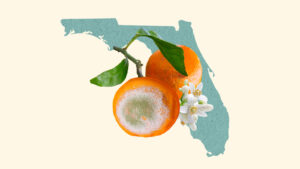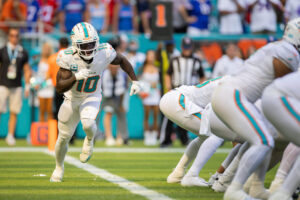The EU has made polluting diets “artificially cheap” by pumping four times more money into farm animals than growing plants, research has found.
More than 80% of public money given to farmers by the EU’s Common Agricultural Policy (CAP) went to animal products in 2013 despite the harm they cause to society, according to a study in Nature Food. Taking animal feed into account, the subsidies contained in a kilogram of beef, the meat with the biggest environmental footprint, doubled from €0.71 to €1.42 (61p to £1.22).
The EU, which plans to make Europe the first climate neutral continent by 2050, spends almost one third of its entire budget on CAP subsidies. “The vast majority of it goes to products that push us to the brink,” said Paul Behrens, an environmental change researcher at Leiden University and co-author of the study.
The subsidy scheme, which pays more to farms that occupy more land, leads to “perverse outcomes for a food transition” because livestock take up more space than plants and inefficiently feed crops that could have gone to people, the researchers found. To produce the same amount of protein, beef requires 20 times more land than nuts and 35 times more than grain.
Behrens said the political inertia means the EU is maintaining this system in the midst of an environmental crisis. “We’re stimulating the worst-case scenario,” he said.
To calculate the full extent of EU support for animal products, the researchers linked subsidy records to an academic database on food flows and tracked public money through the supply chain in 2013, the latest year for which the latter kept data. The CAP has been reformed twice since then, but the breakdown in direct subsidies – before trade flows are taken into account – has remained more or less constant for animal and plant-based foods.
The researchers found that 12% of subsidies were embodied in products shipped outside the EU, mostly to upper-middle and high-income countries. China consumed more of the EU’s farming subsidies than the Netherlands, while the US consumed more than Denmark, the study found.
Mario Díaz Esteban, an ecologist at the National Museum of Natural Science in Spain, who was not involved in the research, said the results were “as solid and clear as they are devastating”.
Other experts have expressed caution about the size of the estimated subsidies flowing to animal products.
Much has changed since 2013, the year the study examined, said Florian Freund, an agricultural economist at Braunschweig University, who was not involved in the research. He wrote together a study in 2022– using a more recent but less complete OECD data set – which found that around half of EU subsidies went to animal food.
He said: “The study illustrates that most subsidies do not support an urgently needed transition to healthy and sustainable diets.”
to newsletter promotion
Alan Matthews, emeritus professor of European agricultural policy at Trinity College Dublin, said the research oversimplified the economic mechanisms at work. The study implicitly assumed that subsidies were fully reflected in the prices at which commodities traded, he said, which was “far from the case”.
Animal agriculture is one of the main causes of the accelerated death of wildlife around the world and is responsible for 12%-20% of the planet-warming pollutants that make extreme weather more violent. In its latest reform for the period 2023-27, the EU decided to set aside a quarter of direct CAP payments for “eco-schemes” that give farmers incentives to farm in an environmentally friendly way.
The research comes as European governments have watered down several green policies in the face of angry farmer protests. On Monday, a key pillar of the EU’s green deal came close to collapse when eight countries withdraw their support for a law to restore nature. EU member states on Tuesday agreed to a commission proposal to weaken and delay some of the environmental conditions that farmers must meet to receive subsidies.
Activists called on the EU to add more green strands to the CAP without reducing the total amount farmers receive.
The move to healthier and more sustainable diets must also work for the farmers who produce the food, said Marco Springmann, a researcher at Oxford University’s Institute for Environmental Change. “Providing them with the right support is essential to a just transition that works for people and the planet.”





